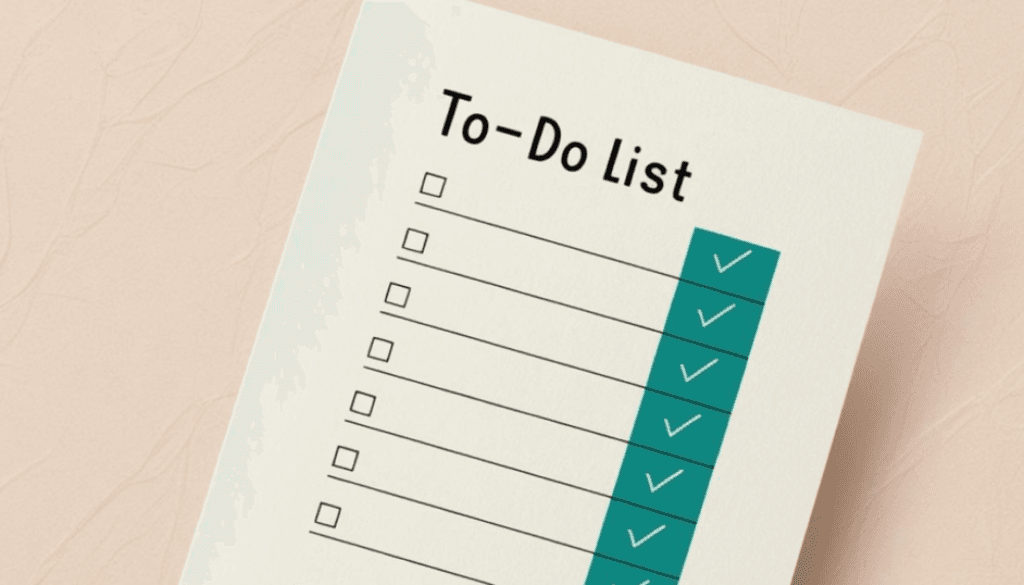The End-of-Day Checklist That Will Keep You Grounded
Learn how a 5-point checklist and journaling routine can help you reflect, grow, and feel fulfilled.
Life moves quickly, and it’s easy to let the days blur together without taking a moment to pause and reflect. Setting aside even a few minutes at the end of the day can make a world of difference. Reflection helps you understand what went well, what didn’t, and how to move forward with more intention.
I’ve been using my end-of-day checklist to help me with self-reflection and self-awareness. It’s a simple yet effective self-reflection tool to stay grounded. This checklist has helped me end each day with clarity and purpose by centring on five key areas of my life. It’s adaptable, so you can use it as a starting point to create your own version, perfect for starting 2025 with a clear mind and a strong sense of direction.
Why Self-Reflection is Important
In the rush of daily life, it’s easy to operate on autopilot—completing tasks, juggling responsibilities, and rarely stopping to take stock of how things are truly going. While this approach might get you through the day, it often leaves little room for growth or personal clarity.
Self-reflection is a way to step back, take a breath, and assess your day with intention. It’s not about judgment or perfection but about understanding yourself better. It gives you the chance to realign with your values, track your goals, and identify areas where you can improve.
Psychology studies have shown that regular self-reflection can reduce stress, increase self-awareness, and even improve decision-making. By taking a few minutes to ask thoughtful questions and process your day, you create space to learn from your experiences and approach tomorrow with a clear, focused mindset.
Self-reflection exercises like an end-of-day checklist can help you:
Track Progress: Are you moving closer to your goals or getting sidetracked? Reflection helps you measure progress, adjust priorities, and stay aligned with what’s most important.
Build Self-Awareness: Taking time to review your decisions and actions helps you uncover patterns—what’s working, what isn’t, and how you can grow.
Relieve Stress: Writing things down or mentally processing the day can ease mental clutter and help you let go of unnecessary worries.
Encourage Self-Compassion: Reflection isn’t about being hard on yourself. It’s a way to approach your day with curiosity and kindness, acknowledging where you did your best while understanding where you can improve.

My 5 Priorities for Self-Reflection
When I first started reflecting on my day, I realised I needed structure. I wanted to focus on areas that felt meaningful and achievable. I decided to focus on five key priorities that felt most important to my life and personal growth. These priorities became the foundation of my end-of-day checklist. They align with goals many of us strive for in our lives.
To reflect effectively, I created a series of questions for each of my five priorities. These questions help me assess my day in a focused, non-judgemental way. The goal isn’t to scrutinise every moment but to gain clarity about what went well, where I struggled, and how I can adjust for tomorrow.
By asking myself these questions daily, I can track my progress, celebrate small wins, and pinpoint areas for improvement.
1. Feeling Fulfilled Every Day
We all want to end our day feeling like we did our best, whether at work, in our relationships, or in our personal projects. For me, fulfilment means knowing that I did my best, whether that’s finishing one important task or simply making progress in a small way. It feels great to end the day satisfied with your effort.
Did I accomplish at least one meaningful task today?
Did I adjust or reschedule unfinished tasks?
2. Following Values and Making Good Decisions
Staying true to your values is important, whether they come from religion, personal principles, or a moral code. For me, this meant staying connected to my faith and making decisions I could be proud of.
Did I complete my prayers or any spiritual practice?
Was I patient and thoughtful in my interactions?
Did I avoid harmful habits, like swearing?
3.Loving and Caring for Yourself
Self-compassion is something we often neglect. Taking a moment to care for your own well-being is essential for mental and emotional health. This priority reminds me to check in with myself and recognise how I’m feeling.
How am I feeling today?
Did I take time to rest or do something I enjoy?
4.Learning and Pushing Boundaries
Challenging yourself to improve adds meaning to each day. I want to keep evolving by learning something new or stepping out of my comfort zone every day. It’s fulfilling to challenge yourself to explore new horizons, adapt to changes, and continuously evolve and grow.
Did I learn something new or work on a skill today?
Did I challenge myself?
Did I step out of my comfort zone?
5.Taking Care of Your Body
Physical health is important for your overall well-being. Finding time to move, even in small ways, helps you feel more present and energised.
Did I move more than I did yesterday (even small steps count)?
Did I spend time outside or get some fresh air?
The key is keeping these questions simple and achievable. They focus on progress rather than perfection, which will help you stay motivated instead of feeling discouraged. For example, rather than asking, “Did I finish everything?” I ask, “Did I do my best?” This small change makes self-reflection a positive experience.

How to Create Your Self-Reflection Checklist in Notion
Setting up your daily checklist in Notion is a quick and convenient way to keep your self-reflection practice consistent. Notion’s flexibility makes it an ideal tool for organising your priorities and tracking them anywhere, whether you’re at home or travelling.
Here’s how you can get started:
Start with a New Page in Notion
Open Notion and create a new page. Give it a title like “Daily Reflection” or “End-of-Day Checklist” to keep it clear and purposeful.Create a List View
Within the page, create a list view which will be where you create your daily entries. Create one page to start your template.List Your Key Areas and Questions
Within your new page, sdd your five reflection areas as headings. Under each, write the corresponding questions you want to ask yourself.Keep Space for Free Writing
Add a section for journaling anything else on your mind, notes, reflections, or goals for tomorrow.Save
Once you’re happy with the setup, save the template. Every time you create a new journal entry, your template will populate.
For detailed, step-by-step guidance on using Notion for this purpose, check out this guide on scribe.
Stay grounded with this simple, daily self-reflection tool
Self-reflection doesn’t need to take a lot of time or be hard to do in order to be useful. You can make a daily habit that keeps you grounded and on track with your goals by focussing on a few key areas and asking yourself simple, deep questions.
The mix of practicality and self-compassion in this reflection method is what makes it work. It’s easy to use the schedule, and it will only take you a few minutes at the end of the day. At the same time, it encourages a kinder approach to self-assessment, focusing on what you achieved rather than what you might have missed.

